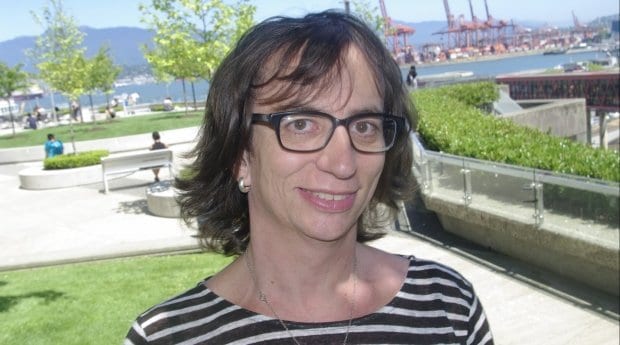June 16 marked the first anniversary of the Vancouver School Board’s (VSB) revised anti-homophobia policy, which aims to make schools more welcoming to transgender students.
The revised policy addresses areas such as washroom and change-room accessibility, proper use of pronouns, access to physical education and sports, as well as a commitment by schools to reduce or eliminate sex-segregated activities.
In a public hearing last May, student Roan Reimer told the board about being forced to use an isolated bathroom in the basement of their school to avoid harassment for using the “wrong” facility.
“Now I feel comfortable using [the] boys’ bathroom,” says Reimer, who just graduated from Vancouver Technical Secondary and uses the gender-neutral pronoun they. “People don’t just glance at me and scurry out, although a lot of Grade 8 students were very confused at first. Boys give me casual greetings, but last year I didn’t get that. Most people were pretty awkward about it, but now people learned I don’t have a gender and it’s okay for me to be in the place and not okay to ask me to leave.”
Stephanie Lofquist, the VSB’s anti-homophobia and diversity mentor, says the district aims to designate a universal bathroom in every secondary school by the end of September and every elementary school by the end of the fall semester.
“I was just meeting with the facilities folks and the goal for secondary schools is to have universal bathrooms across the district with the correct signage and non-keyed inside locks by September,” she says. “We finalized the sign. It’s a great sign that’s consistent with the parks and recreation signage.”
Vision Vancouver trustee Patti Bacchus, who chaired the VSB in 2014, says the district will also include universal bathrooms in any new, or newly renovated, schools. “It’s of minimal, if any, cost,” she says.
In addition to improving facilities, the district is also creating a guidebook for schools that will offer administrators information on how they can best accommodate the needs of transgender and gender-variant students. The document, which is currently in the final stage of production, will be sent to schools in September.
“The reality is we were already doing a lot of the things in the policy and we continue to do them,” Lofquist says. “This guidebook will help ensure that the policy is consistent across the district. I think it’s important for schools to have a policy to guide and direct them, and I think it’s important that they have a policy that supports the work they do to create welcoming environments for diversity.
Although hundreds of policy opponents turned up to voice their opposition to the amendments last year, Morgane Oger says she’s not aware of any complaints about the policy’s implementation since then.
“There have been no complaints to DPAC executive board on transphobia,” says Oger, who sits on the District Parent Advisory Council (DPAC) board, and who also chairs Vancouver’s Trans Alliance Society.
“There have been complaints to me about children who are members of trans families having problems and not being supported effectively in the schools, and I’ve heard these complaints in both elementary and secondary schools,” she notes. “That said, the root causes of these issues did get addressed over time. So there’s no outstanding issues that I have on my plate right now with the Vancouver School Board.”
Reimer says the policy, which received unanimous support from their school’s staff and administration, has already made an impact on school culture.
“Now that we have this policy that’s very specific to gender identity we have teeth for the first time,” Reimer says. “It’s not just us demanding something only to have people laugh at us. We can demand our rights and we have legal backing for this now. The VSB — so by extension the teachers and [the BC Teachers Federation] — stand with us now. It’s not just one kid against another but all of us. United.”
Reimer says the policy has sparked a dramatic increase in attendance at their school’s gay-straight alliance (GSA), which went from four to 25 members in the past year. Most GSA members are in Grades 8 or 9.
“It’s very powerful to see a Grade 8 student less than five feet tall correct someone’s pronoun,” Reimer says, “especially to someone who has a great power dynamic over them — [a] teacher who is not only someone larger in stature but also perceived privilege. It’s very powerful to see, especially in a community that’s beaten down a lot.”

 Why you can trust Xtra
Why you can trust Xtra


